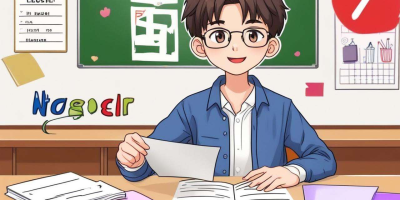When it comes to learning, choosing the right teacher can significantly impact the quality and efficiency of our educational journey. Different types of teachers possess unique qualities and teaching styles that suit various learning needs and preferences. Deciding which teacher is better for you depends on multiple factors, such as your learning goals, personality, and the subject matter you are interested in.
One type of teacher that many students find beneficial is the experienced and knowledgeable instructor. These teachers have extensive expertise in their fields and can offer in-depth insights and explanations. They often have a wealth of real-world examples and practical applications to share, which helps students better understand and retain the information. Experienced teachers are also likely to have refined teaching methods over the years, allowing them to effectively convey complex concepts in an accessible manner. For instance, in a science class, an experienced teacher can use vivid demonstrations and hands-on experiments to make abstract scientific theories come to life. They can answer students' questions accurately and provide additional resources for further exploration. This type of teacher is great for those who want a thorough understanding of the subject and are eager to delve deeper into the topic.
Another excellent option is the passionate teacher. Passion is contagious, and a passionate teacher can inspire students to love learning. They have a genuine enthusiasm for the subject they teach, which makes the lessons more engaging and exciting. Their energy and dedication can be motivating, pushing students to put in more effort and take an active interest in the material. A passionate teacher will go the extra mile to make the learning experience memorable. They might incorporate interesting stories, current events, or cultural references related to the subject. In a literature class, a passionate teacher could bring classic novels to life by sharing anecdotes about the authors' lives or the historical context in which the books were written. This kind of teacher is ideal for students who need that extra spark to stay motivated and engaged in their studies.
A patient teacher is also highly valuable. Learning can be a challenging process, and having a teacher who is patient and understanding can make a world of difference. Patient teachers are willing to repeat explanations, answer the same question multiple times, and provide additional support whenever needed. They don't get frustrated easily and are able to create a comfortable learning environment where students feel safe to ask questions and make mistakes. For students who may be slower learners or those who struggle with certain concepts, a patient teacher can build their confidence and help them overcome difficulties. In a math class, a patient teacher will work step by step with students who are having trouble grasping a particular formula or solving a problem, ensuring that they fully understand each stage of the process.

In addition, a creative teacher can offer a fresh perspective on learning. They use innovative teaching methods and approaches to make the lessons more dynamic and interactive. Creative teachers might incorporate group projects, role-playing, multimedia presentations, or other non-traditional teaching techniques. This not only makes the learning experience more fun but also helps students develop critical thinking, teamwork, and communication skills. For example, in an art class, a creative teacher could assign a project where students have to create a mural using different materials and techniques, encouraging them to think outside the box and express their creativity. This type of teacher is suitable for students who thrive in a more unconventional and stimulating learning environment.
Moreover, a teacher who is good at adapting to individual learning styles can be extremely beneficial. Every student learns differently - some are visual learners, some are auditory learners, and others are kinesthetic learners. A teacher who recognizes these differences and tailors their teaching accordingly can ensure that each student gets the most out of the lessons. They might use visual aids for visual learners, provide audio recordings for auditory learners, or include hands-on activities for kinesthetic learners. In a language class, an adaptable teacher could use flashcards, podcasts, and language games to accommodate the various learning styles of the students. This way, students can better absorb and retain the information, as the teaching methods are customized to their specific needs.
In conclusion, the choice of which teacher is better depends on individual circumstances. Whether it's an experienced, passionate, patient, creative, or adaptable teacher, each has their own strengths that can enhance the learning experience. Students should consider their own learning goals and preferences when selecting a teacher to ensure they receive the best possible education and support on their learning journey. By finding the right teacher, students can unlock their full potential and develop a love for learning that will serve them well throughout their lives.